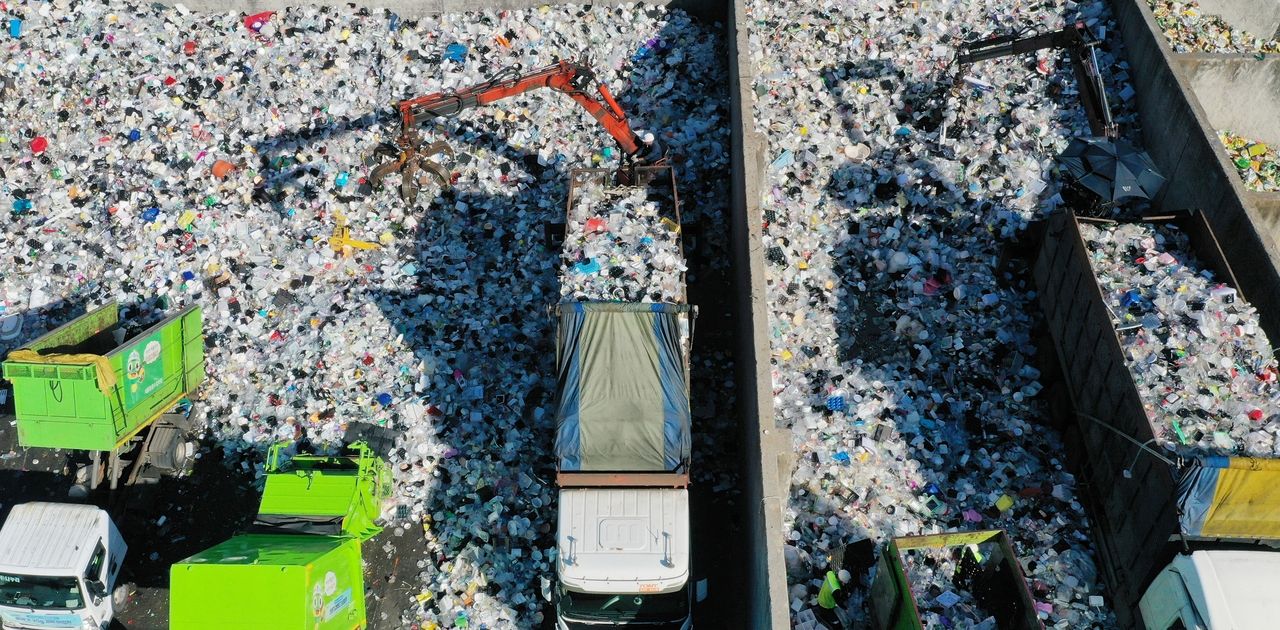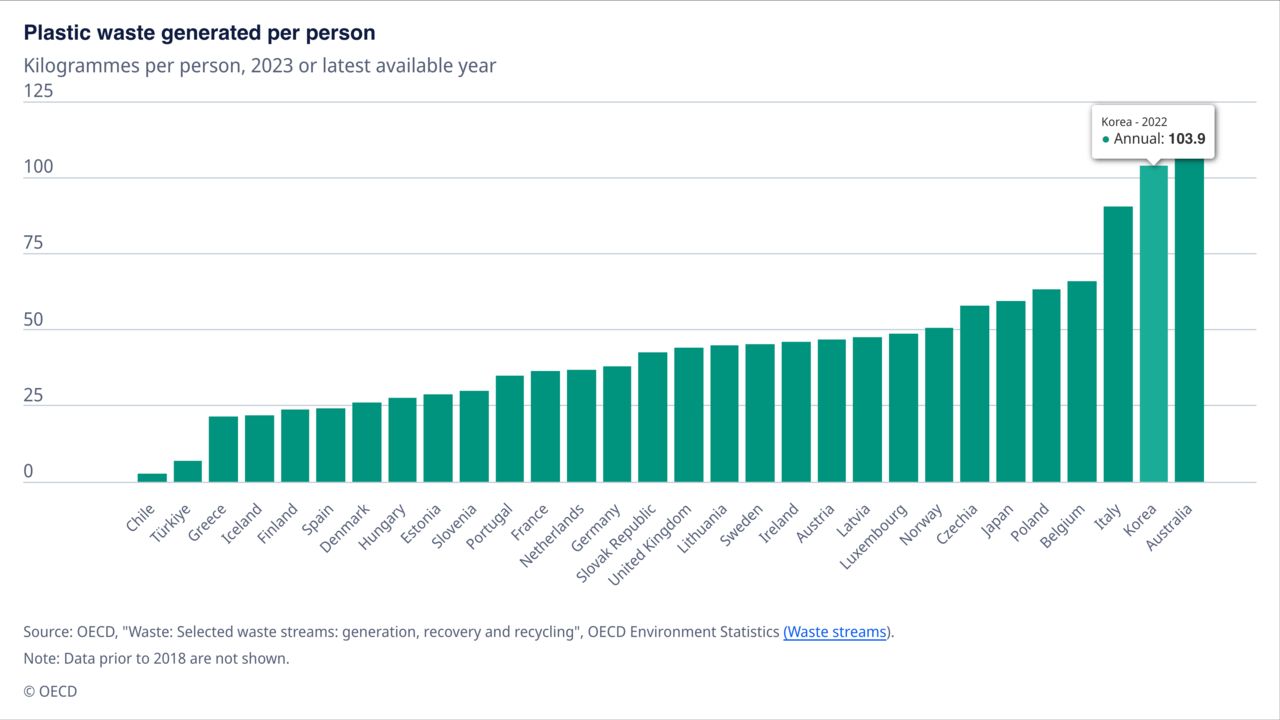Despite reputation for meticulous waste sorting and recycling, Korea burns nearly one-third of plastic waste, while reporting it as “recycled” South Korea is moving to stop counting the burning of plastic and other waste for energy as “recycling,” a change that would sharply lower the country’s official recycling rate but bring it closer to international norms.
South Korea is moving to stop counting the burning of plastic and other waste for energy as “recycling,” a change that would sharply lower the country’s official recycling rate but bring it closer to international norms.
The Ministry of Climate, Energy and Environment said this week it has begun reviewing how to exclude thermal recycling — the use of waste incineration to produce electricity or heat — from national recycling statistics. The ministry told Rep. Park Hong-bae of the National Assembly’s Environment and Labor Committee on Wednesday that it plans to collect input from industry and experts before drafting formal changes.
Thermal recycling has been included in South Korea’s official recycling rate since 1999. It allows factories, such as cement plants, to replace fossil fuels by burning discarded plastic and tires. While this process generates energy, it does not reuse materials, and most developed economies classify it as “energy recovery,” not recycling.
The European Union and US both make this distinction.
According to the ministry’s 2023 data, South Korea’s household waste recycling rate stood at 58.7 percent. Of that, 46.2 percent came from material recycling, while 12.5 percent came from thermal recycling. For all plastic waste, including industrial sources, thermal recycling made up about 29.5 percent of what the government counted as “recycled.” Removing it from the total could cut the nation’s apparent household recycling rate by more than 10 percentage points and the plastic recycling rate by roughly 30 percentage points.
 In 2022, South Korea generated 103.9 kilograms of plastic waste per person, more than twice the OECD average. That level of output, combined with low material recycling rates, has undermined trust in the country’s recycling data.
In 2022, South Korea generated 103.9 kilograms of plastic waste per person, more than twice the OECD average. That level of output, combined with low material recycling rates, has undermined trust in the country’s recycling data.
Environmental groups have long accused Seoul of inflating its recycling numbers. A 2023 report by Greenpeace and Chungnam National University found that only 16.4 percent of household plastic waste sorted for recycling in 2021 was turned back into new plastic. The rest was burned (32.6 percent) or put into landfills (12.8 percent).
The ministry began separating thermal and material recycling in its statistics in December 2024. Officials say the latest review aims to align the law with that approach. A ministry representative said that while “the direction is set,” legal revisions and adjustments to industry subsidies could delay full implementation until around 2028.
Under current rules, waste labeled as recycled is exempt from landfill fees and counts toward local governments’ and companies’ environmental performance, influencing environmental scores and government grants. Reclassifying thermal recycling would reduce those benefits and require new criteria for energy recovery facilities.
Rep. Park said redefining recycling was essential to restoring credibility. “Only when the government adopts a definition that meets international standards will people’s efforts in separating waste truly support a circular economy,” he said.
- 2 NK soldiers briefly cross MDL to apparently chase defecting soldier: sources
- Hybe partners with LAFC
- N. Korea breaks ground on memorial museum for its troops killed in Russia’s war with Ukraine
- Seoul shares open sharply higher on eased US-China tensions
- Lee says ‘carefully’ reviewing impact on financial markets during US tariff talks










Most Commented